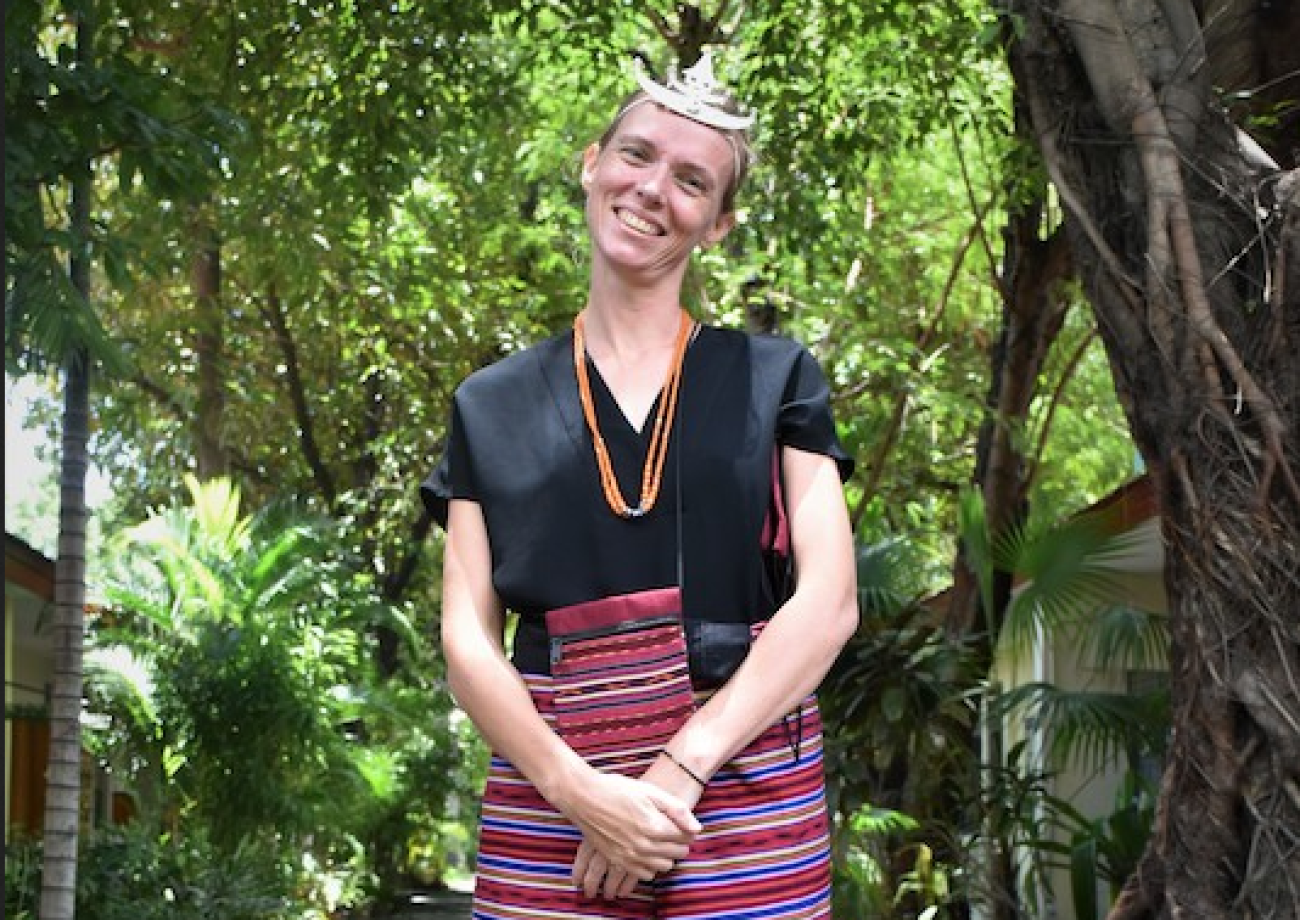UN Women's Camille Wauters: We see how positive these changes have been for the whole society

"What are your reflections over the past 5 years on changes in gender equality and Women, Peace and Security (WPS) in Timor-Leste?"
Camille Wauters has been with UN Women since 2008. She started working in Niger as a UN Volunteer for UN Women as Economic Empowerment Officer and then continued working in Palestine. She has been working at the Timor-Leste Country Office since 2014, where she managed the Gender Mainstreaming programme and later the Women, Peace and Security (WPS) programme. Let’s hear more about her work with UN Women Timor-Leste:
What are your reflections over the past 5 years on changes in gender equality and WPS in Timor-Leste?
Many changes are happening. Because the country was born struggling for independence, which was linked to human rights and gender equality, the country is very vibrant and one of the few I have seen that is advancing very strongly on gender equality. Of course, it has its ups and downs. Because there are strong women’s advocacy groups, a lot of advances have been made, especially on the legal side. There is a quota for women in parliament, but also at the village level. There is strong advocacy for more women in the security sector, which has led to the National Action Plan on WPS, approved in 2016. This has really brought a change within the Ministry of Defense and the Ministry of Interior, where there are currently three women and three men who are Director Generals, involved in very high-level decision-making.
What do you think makes UN Women a unique organization?
You’re with a group of people that are really committed to their work, who really believe that change can happen and that we are there to make it happen. Working for UN Women, you work with government partners at a very high-level of decision-making, so you are able to work alongside your colleagues to bring change within the country on a macro level through policy changes and laws. We see how positive these changes have been for the whole society.
What have you enjoyed most about working with UNW in Timor-Leste?
Working with the team and with our colleagues and partners. I have enjoyed learning from partners, seeing how committed and professional they are and seeing the changes we can make. For example, within the Ministry of Interior, working with the National Directorate of Community Conflict Prevention, there is a strong partnership with UN Women. Our strong mutual trust leads us to developing something quite unique as we are working on strengthening and institutionalizing a gender-responsive approach to mediation. This new approach will leave more space for women to speak up on community conflict prevention and resolution. I believe this is going to bring about profound change in Timor-Leste, where women are traditionally not allowed to speak out in community conflict resolution practices. I have also learned a lot from the women and men I have been working with, especially at the municipal level. Because a lot of work is focused at the national level with our institutions, when you start working at the municipal level, it’s incredible to see how committed they are and how they are bringing change in their communities with very few means.
What are your aspirations for gender equality advocates in Timor-Leste?
To continue the work. I think as Timor-Leste has such a long history of working on advocacy and fighting unjust causes, there are some very strong advocates for gender equality – both women and men – who I know will take it forward. I hope we will hear more voices from the municipal level. There have been a lot of gains at the national level, especially in parliament and governance, where women have made significant strides. However, more support is needed at the municipal level, and that’s where the next big decisions are going to be taken, especially as there is a decentralization process that is going to happen in Timor-Leste. We need to support them, and I think this type of work is really important.

